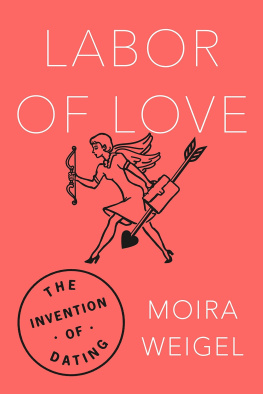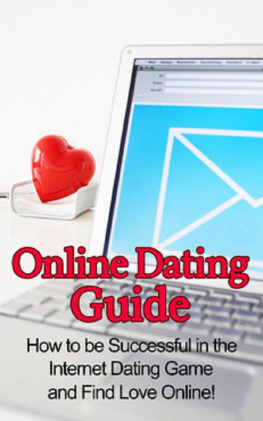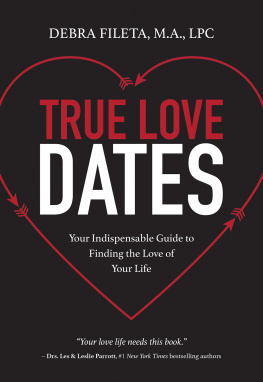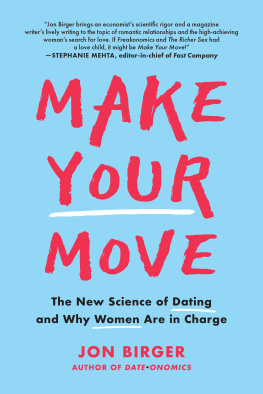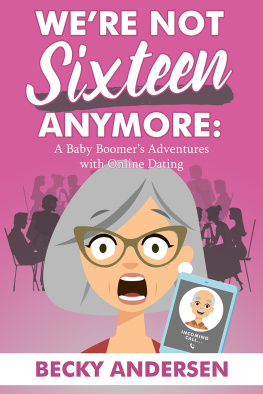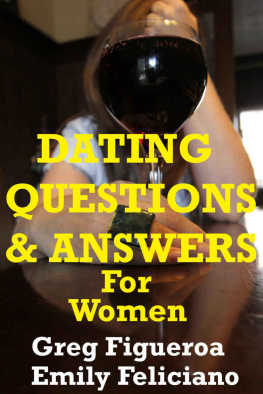Moira Weigel - Labor of Love: The Invention of Dating
Here you can read online Moira Weigel - Labor of Love: The Invention of Dating full text of the book (entire story) in english for free. Download pdf and epub, get meaning, cover and reviews about this ebook. year: 2016, publisher: Farrar, Straus and Giroux, genre: Romance novel. Description of the work, (preface) as well as reviews are available. Best literature library LitArk.com created for fans of good reading and offers a wide selection of genres:
Romance novel
Science fiction
Adventure
Detective
Science
History
Home and family
Prose
Art
Politics
Computer
Non-fiction
Religion
Business
Children
Humor
Choose a favorite category and find really read worthwhile books. Enjoy immersion in the world of imagination, feel the emotions of the characters or learn something new for yourself, make an fascinating discovery.
- Book:Labor of Love: The Invention of Dating
- Author:
- Publisher:Farrar, Straus and Giroux
- Genre:
- Year:2016
- Rating:4 / 5
- Favourites:Add to favourites
- Your mark:
Labor of Love: The Invention of Dating: summary, description and annotation
We offer to read an annotation, description, summary or preface (depends on what the author of the book "Labor of Love: The Invention of Dating" wrote himself). If you haven't found the necessary information about the book — write in the comments, we will try to find it.
Does anyone date anymore? Today, the authorities tell us that courtship is in crisis. But when Moira Weigel dives into the history of sex and romance in modern America, she discovers that authorities have always said this. Ever since young men and women started to go out together, older generations have scolded them: Thats not the way to find true love. The first women who made dates with strangers were often arrested for prostitution; long before hookup culture, there were petting parties; before parents worried about cell phone apps, they fretted about joyrides and parking. Dating is always dying. But this does not mean that love is dead. It simply changes with the economy. Dating is, and always has been, tied to work.
Lines like Ill pick you up at six made sense at a time when people had jobs that started and ended at fixed hours. But in an age of contract work and flextime, many of us have become sexual freelancers, more likely to text a partner u still up? Weaving together over one hundred years of history with scenes from the contemporary landscape, Labor of Love offers a fresh feminist perspective on how we came to date the ways we do. This isnt a guide to getting the guy. There are no ridiculous rules to follow. Instead, Weigel helps us understand how looking for love shapes who we areand hopefully leads us closer to the happy ending that dating promises.
A radical Marxist feminist tract disguised as a salmon-pink self-help book. --Laurie Penny, The New Statesman
Much juicier than your average history book . . . [it] reads like a documentary about something you never knew could be so interesting. --BUST
As compulsively readable as any self-help dating book, Moira Weigels Labor of Love is an original, exhaustive study of courtship in the United States across two centuries. As Weigel finds, advances in technology dont necessarily equate with mores: women still serve as the assigned arbiters and police of all things sexual, from holding hands to giving birth. But more than polemic, Labor of Love is a heartfelt work, written from and speaking to the need for intimate connection that animates our willingness to navigate these complex and contradictory codes. --Chris Kraus, author of I Love Dick
Labor of Love is a brilliant history of courtship, love, and sex that is also a brilliant investigation into profound changes in the nature of American work, leisure, consumer society, education, and city life over the twentieth-century and into the new millennium. Elegantly written, gratifyingly clear-eyed, and sharply funny, it restores the essential strangeness of dating, while expertly navigating the fraught contemporary debates over its meaning. --Nikil Saval, author of Cubed: A Secret History of the Workplace
Labor of Love is a work of essential social history. This is by far the best treatment of courtship, romance, and that awkward squirmy ritual we call a date Ive ever read. --Christian Rudder, author of Datacylsm: Who We Are (When We Think No Ones Looking) and founder of OkCupid
Instead of going out tonight, do yourself a favor: stay in and read this book. Moira Weigel and her genre-bending history of dating are excellent, illuminating company. --Astra Taylor, author of The Peoples Platform and director of Examined Life and Zizek!
Moira Weigel was born in Brooklyn. Her writing has appeared in The Guardian, The Nation, The New Republic, n+1, and The New Inquiry, among other publications, and she is currently completing a PhD in Comparative Literature at Yale University. After years of first-person research on dating, she is off the market. Labor of Love is her first book.
Moira Weigel: author's other books
Who wrote Labor of Love: The Invention of Dating? Find out the surname, the name of the author of the book and a list of all author's works by series.

